
The global inflation spike, continued supply shortages and geopolitical sanctions have seen fuel and electricity prices soar.
Are EVs the answer? Despite the higher upfront price tag, a key selling point of electric cars is cheaper long-term running costs compared to traditional internal combustion engine counterparts.
However, while EVs theoretically have a lower total cost of ownership over time, it is currently subject to higher insurance premiums, and some car brands have set similar servicing capped-prices and intervals for EVs compared to petrol- or diesel-powered models – despite significantly fewer moving parts on the former.
And, fear and hesitancy continues to cloud battery longevity, safety credentials, and environmental sustainability.
How do the savings of an EV compare in 2023?
For this story, we’ll compare an entry-level EV with the closest equivalent petrol, petrol-hybrid or diesel model.
For our numbers, we'll use claimed energy usage for the EV (kWh/100km) and fuel consumption figures (litres/100km) based on the stricter, but still conservative, combined WLTP testing cycle.
Some assumptions are needed...
We’ll work to the ABS's data that shows the average Australian drives 15,000km per year (or 41km per day).
For EV charging, we'll assume a full 0-100% recharge (which for most battery types is generally not recommended), not accounting for potential charging losses, and our sums are based on:
- Home off-peak overnight electricity tariff: $0.20 per kWh
- 50kW DC fast charging station (most common type): $0.45 per kWh
We also assume estimated average fuel prices:
- 94RON E10 unleaded: $1.80 per litre
- 95RON premium unleaded: $2.00 per litre
- 98RON premium unleaded: $2.00 per litre
- Diesel: $1.90 per litre
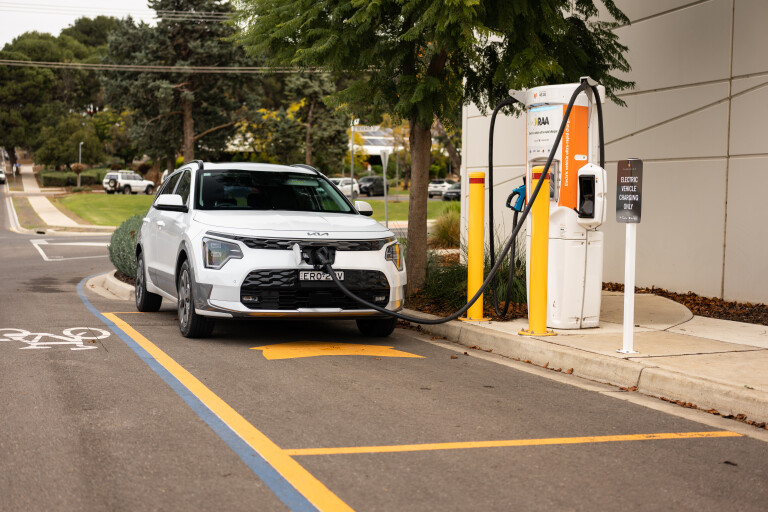
How much does it cost to fuel a petrol car vs charge an electric car in 2023?
Editor's note
Figures in this story are a guide only. Costs are subject to change and WLTP consumption ratings often do not reflect reality as it depends on a variety of factors, including driving behaviour, weather conditions, climate control use and more.
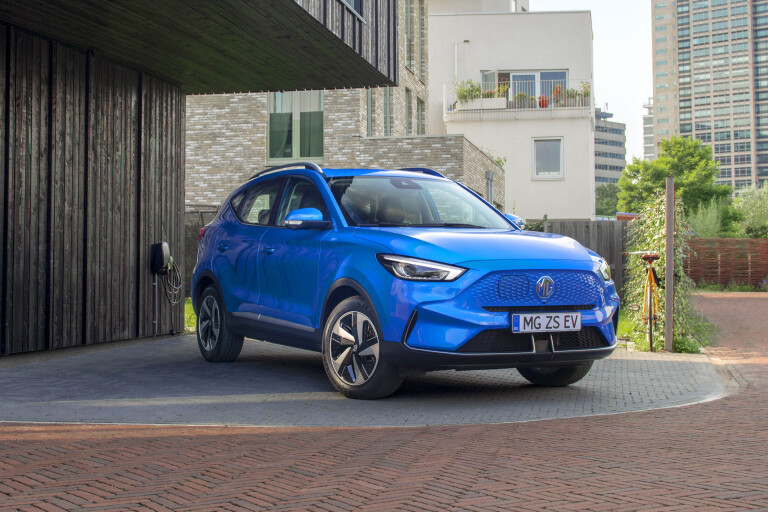
MG ZS EV vs ZST
The MG ZS EV continues to be one of Australia’s most affordable new electric SUVs.
| MG ZS EV (home charging) | MG ZS EV (public charging) | MG ZST (94RON E10) | |
|---|---|---|---|
| Running cost/year | $513 | $1154 | $1917 |
| Running cost/week | $9.84 | $22.14 | $36.76 |
It received a major facelift last year with an all-new lithium-iron-phosphate (LFP) battery pack on the ‘standard range’, upgraded tech, and refreshed looks in line with its petrol-powered ZST sibling.
Opting for the standard range electric small SUV (17.1kWh/100km) could save around $27 per week or $1404 per year in running costs if owners can charge overnight at home compared to filling up the ZST (7.1L/100km) with the most affordable 94 RON E10 unleaded petrol.
If charged on the most common 50kW DC fast charging stations with the two key providers in Australia – Chargefox and Evie Networks – it can still save owners about $15 per week or $763 annually in ‘fuel’ costs for the ZS EV compared to the turbocharged petrol ZST.
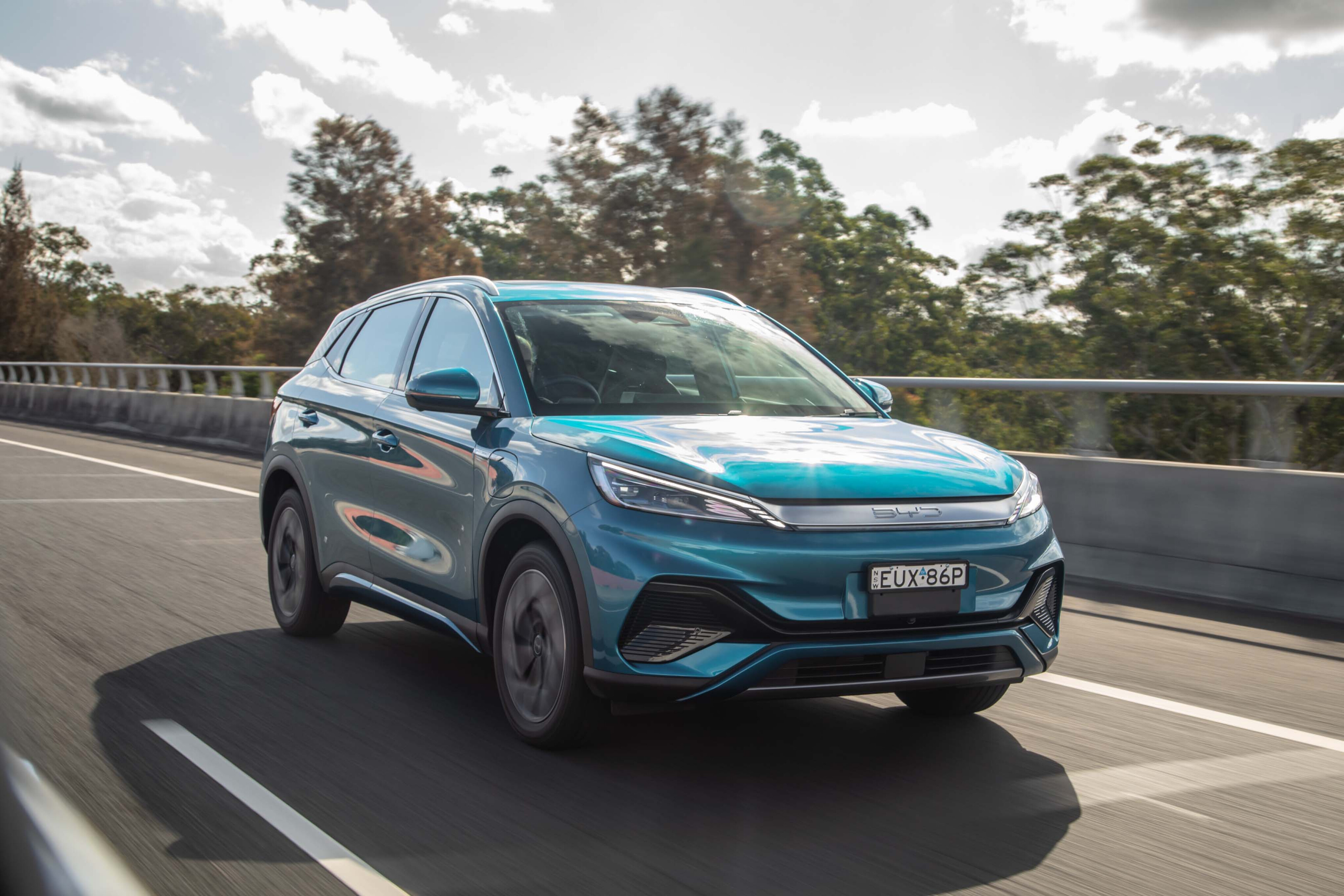
BYD Atto 3 vs Mazda CX-30
While Build Your Dreams (BYD) is still relatively new in Australia, the Atto 3 small electric SUV has become a common sight on local roads.
| BYD Atto 3 Standard Range (home charging) | BYD Atto 3 Standard Range (public charging) | Mazda CX-30 G25 FWD (94RON E10) | |
|---|---|---|---|
| Running cost/year | $435 | $978.75 | $1782 |
| Running cost/week | $8.34 | $18.77 | $34.18 |
Among its key features is a proprietary LFP-based structural BYD Blade Battery technology that’s claimed to be more safer, durable and longer-lasting than other packs.
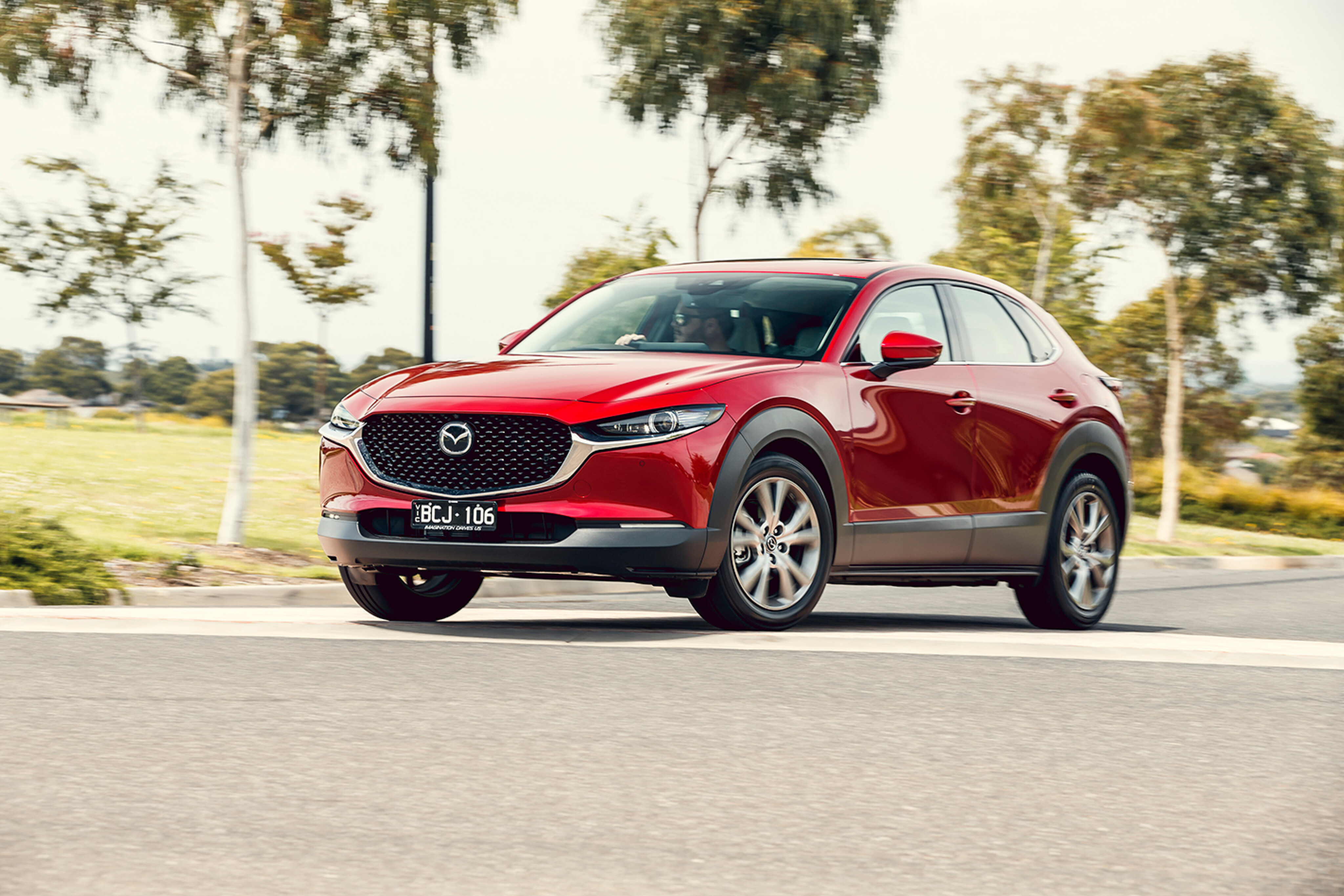
Compared to the popular Mazda CX-30 small SUV equipped with the more powerful ‘G25’ 2.5-litre petrol engine in front-wheel drive guise (6.6L/100km), the Atto 3 (14.5kWh/100km) is about $26 per week or $1347 per year per year better off if owners recharge at home.
Those running cost savings cut to around $15 per week or $803 per year per year if solely using public EV fast chargers.
Hyundai Ioniq 5 vs Tucson
| Hyundai Ioniq 5 Techniq (home charging) | Hyundai Ioniq 5 Techniq (public charging) | Hyundai Tucson 2.0L (diesel) | |
|---|---|---|---|
| Running cost/year | $510 | $1147.50 | $1795.50 |
| Running cost/week | $9.78 | $22 | $34.43 |
The retro-inspired Hyundai Ioniq 5 EV and edgy-looking Tucson are the South Korean carmaker’s offerings to satisfy the in-demand medium SUV segment.
The Ioniq 5 Techniq (17.0kWh/100km) is around $25 per week or $1285.50 per year cheaper to charge at home compared to refilling the tank of the Tucson with its optional 2.0-litre diesel unit (6.3L/100km).

If owners rely on public EV fast charging infrastructure, the Ioniq 5 can still potentially save around $13 per week or $648 annually compared to running a diesel-powered Palisade.
Of course, there’s a wider purchase price tag for choosing the zero exhaust emissions option and the long driving range afforded by the diesel would certainly be more ‘convenient’, but the EV still has the advantage of cheaper long-term running costs and doesn’t emit harmful local fumes.
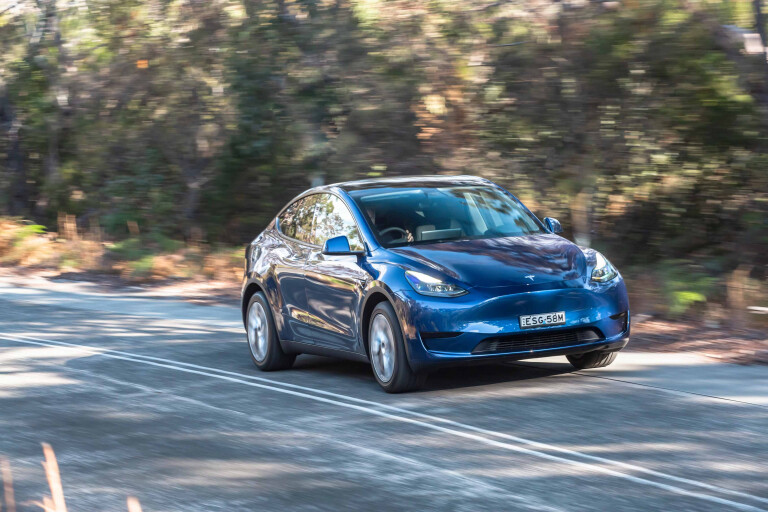
Tesla Model Y vs Toyota RAV4 Hybrid
The top-selling Tesla Model Y adds the crossover SUV formula to the Model 3 sedan. But is it cheaper to ‘fuel’ than the booming Toyota RAV4 Hybrid?
| Tesla Model Y RWD (home charging)* | Tesla Model Y RWD (public charging)* | Toyota RAV4 Hybrid 2WD (94RON E10) | |
|---|---|---|---|
| Running cost/year | $378 | $850.50 | $1269 |
| Running cost/week | $7.25 | $16.31 | $24.34 |
*Energy consumption figure for the Tesla Model Y rear-wheel drive (RWD) is based on battery capacity according to EV Database [↗]. Tesla does not disclose all specifications for its vehicles.
The base Model Y RWD (12.6kWh/100km) still saves owners about $17 per week or $891 per year in running expenses when charged at home compared to the RAV4 Hybrid two-wheel drive (4.7L/100km), despite its frugal petrol-electric hybrid motor.
Charging only at public EV fast chargers brings the Model Y’s savings down to around $8 per week or $419 per year in running costs versus the RAV4 Hybrid.
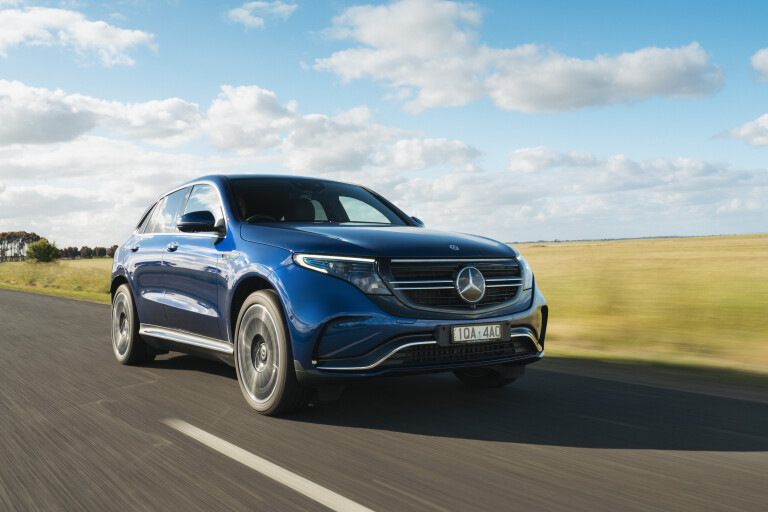
Mercedes-Benz EQC vs GLC
Our Wheels COTY 2019 winner, the Mercedes-Benz EQC SUV, isn’t as fresh in the rapidly growing EV scene now – but it’s still selling in respectable numbers.
| Mercedes-Benz EQC 400 (home charging) | Mercedes-Benz EQC 400 (public charging) | Mercedes-Benz GLC 300 (98RON) | |
|---|---|---|---|
| Running cost/year | $642 | $1444.50 | $2430 |
| Running cost/week | $12.31 | $27.70 | $46.60 |
Compared to its outgoing GLC (8.1L/100km) derivative – which demands a minimum of 98RON premium unleaded petrol – the electric EQC (21.4kWh/100km) is about $34 per week or $1788 per year cheaper to run when charged at home.
Meanwhile, charging the medium luxury SUV on public EV infrastructure reduces those savings to around $19 per week or $986 per year in running expenses versus its petrol-powered equivalent.
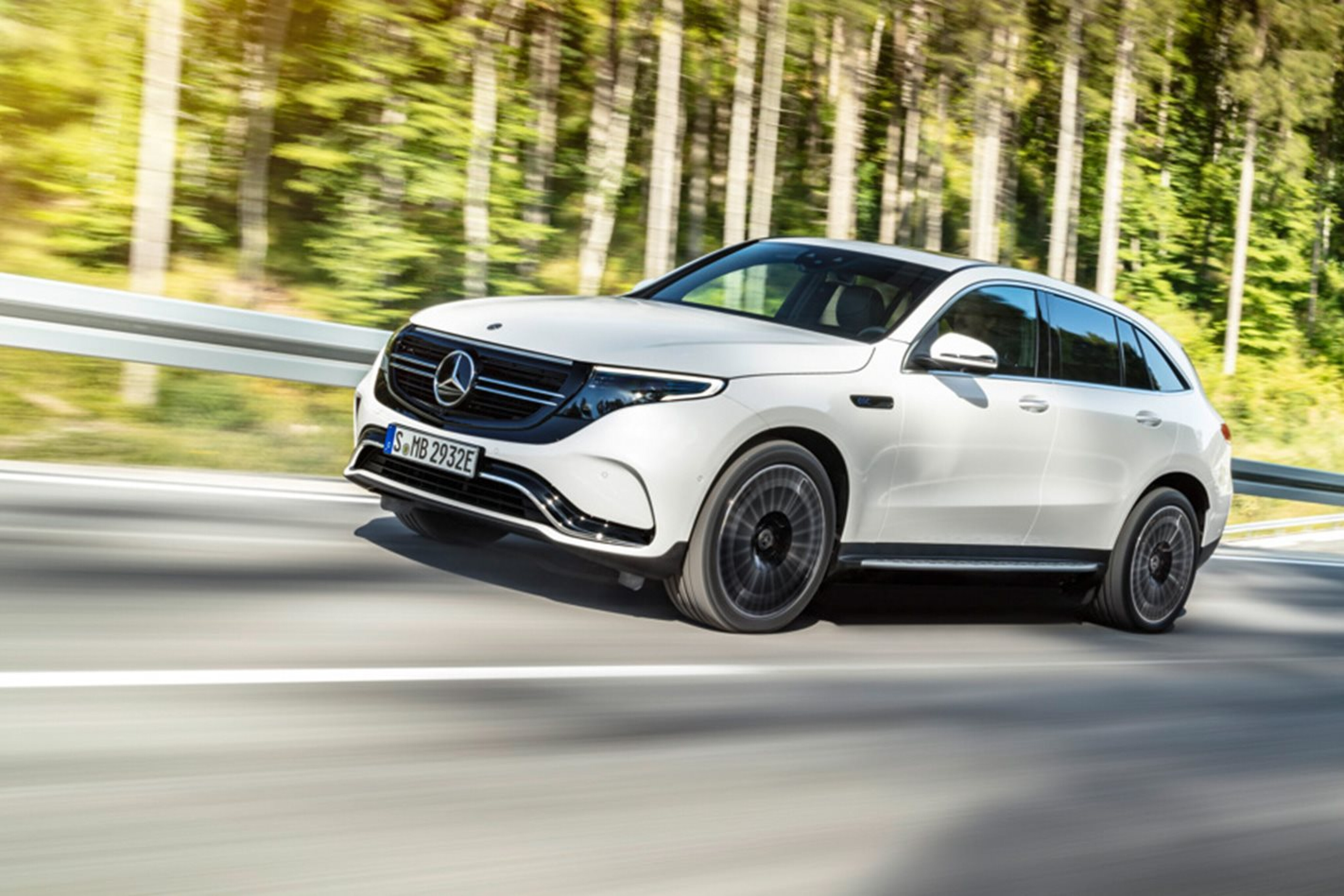
EVs are cheaper to run, so... easy decision, right?
The sums from the few electric car models in this story demonstrates that, despite rising electricity and fuel costs, they are still cheaper to power from day one – as long as you don’t choose some pricier public chargers.
The key argument is the savings for avoiding the fuel pump over time will eventually recoup the EV price premium, which would ‘break even’ quicker if you drive longer distances and recharge more often.
There's always a catch.
The initial price hurdle still remains a key issue, even though not all EV models are that much more expensive than equivalent combustion engined vehicles. And, if you can’t access a power plug at home, then it means relying on an uncommon, unreliable, sometimes congested, and pricier public charging network.
Battery technology is evolving to address contentious issues around raw material sustainability, manufacturing costs, and safety. (See the stories linked in our Big Box below.)
There are also concerns about battery longevity, even though evidence highlights they’re often just misleading myths, and it seemingly hasn’t impacted used EV depreciation as petrol and diesel engines become overshadowed by newer electric technology.
EVs are not for everyone (for now). But, it is the quieter, simpler and local emissions-free form of transportation to get from A to B.
More EV stories to help you choose the best car for your needs
🚘 EV news, reviews, advice & guides
- ❓ Short & sweet: Your EV questions answered
- ⚡ New EVs: Everything coming to Australia
- 🥇 Australia's EVs with the longest driving range
- ⚖️ Best-value EVs by driving range
- 💰 How much do EVs cost in Australia?
- 😰 How much more expensive are EVs?
- ⚖️ Number crunching: Is it time to switch to an EV?
- ♻ Should you buy a used EV?
- 🛡️ Are EVs more expensive to insure?
- 🆚 Costs compared: Charging an EV vs fueling a car
- 📖 EV charging guide
- 👨🔧 EV servicing explained
- 🔋 EV battery types explained
- 🪫 When do EV batteries need replacing?
- 🆚 Hydrogen v EVs: What's best for Oz?
- 🌏 How sustainable are EVs, really?

COMMENTS